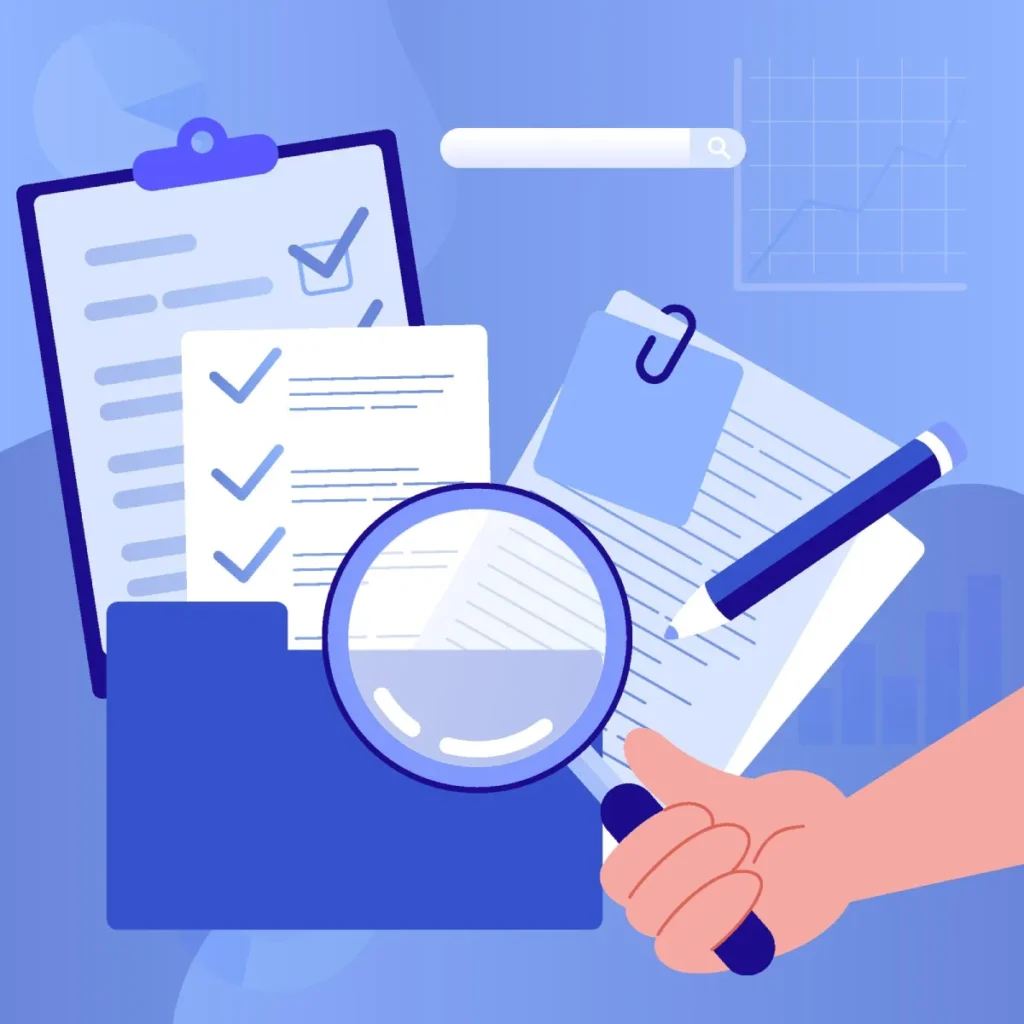An expert opinion letter is a crucial document in an EB-2 NIW (National Interest Waiver) petition, providing an independent assessment of the applicant’s qualifications and the merits of their proposed endeavor. It helps demonstrate that the applicant’s work has substantial merit and national importance, and that they are well-positioned to advance their endeavor in the U.S., thus justifying a waiver of the job offer requirement.

Key Aspects of an Expert Opinion Letter in EB-2 NIW:
- Independent Assessment:
The letter should come from an independent expert in the applicant's field, not someone closely associated with the applicant (e.g., a co-worker or someone with a personal relationship).
- Demonstrating Exceptional Ability or Advanced Degree:
The letter should highlight the applicant's exceptional ability or advanced degree, demonstrating that they possess a level of expertise significantly above what is ordinarily encountered in their field.
- Merit and National Importance:
The expert should address the substantial merit of the applicant's proposed endeavor and its potential benefit to the United States.
- Position to Advance:
The letter should explain why the applicant is well-positioned to advance their proposed endeavor in the U.S., considering their skills, experience, and the specific context of their field.
- Evidence-Based:
The expert should base their opinion on objective evidence provided by the applicant, such as their resume, publications, presentations, and other relevant documentation.
-
Number of Letters:
While there's no strict requirement, it's generally recommended to include at least 2–3 expert opinion letters to bolster the case.
-
Potential Impact:
Well-written expert opinion letters can significantly influence the outcome of an EB-2 NIW petition by providing a compelling narrative of the applicant's qualifications and the potential benefits of their work to the U.S.
-
Expert Qualifications:
The letter should clearly state the expert's qualifications, including their credentials, experience, and any relevant affiliations, to establish their credibility.
-
Format and Content:
While the format may vary, the letter should generally include an introduction, a description of the applicant's endeavor, an evaluation of their qualifications, and a conclusion summarizing their assessment.
Unleash Your Academic Success Today
Documents required for a EB2-NIW
- Proposed endeavor / Business or a Professional plan.
- All work experience letters (Letters documenting at least 10 years of full-time experience in your occupation).
- All education credentials, degree, diploma, certificate, or similar award from a college, university, school, or other institution of learning relating to your area of exceptional ability.
- Latest Resume.
- A license to practice your profession or occupation.
- Evidence that you have commanded a salary or other remuneration for services that demonstrates your exceptional ability.
- Membership in a professional association(s).
- Recognition for your achievements and significant contributions to your industry or field by your peers, government entities, professional or business organizations or other comparable evidence of eligibility is also acceptable.
- Recommendation letters and Petition support letter.
- Any other documents submitted/being submitted to USCIS.


Key Requirements for EB-2 NIW
Required documents typically Include:
1. Advanced degree or exceptional ability: Master’s degree or higher, or exceptional ability in their field.
2. National interest: Work must benefit the US national interest.
3. Well-positioned to advance the proposed work: Individual must be well-positioned to advance the proposed work.
4. Balancing test: USCIS considers factors like economic impact, improving healthcare, education, environment, and more.
Meeting these requirements can support a successful EB-2 NIW application.

Role of the Expert Opinion Letter in an EB2-NIW Petition
USCIS uses the Dhanasar framework to adjudicate NIW petitions, which requires proving:
- Substantial merit and national importance of your work
- You are well positioned to advance the endeavor
- On balance, it would be beneficial to the U.S. to waive the job offer/labor certification
An expert opinion letter can speak directly to these prongs, particularly:
- The merit and importance of your work
- Your qualifications and capability
- How your work offers benefits that justify bypassing labor certification
EB2-NIW Expert Opinion Letters for an RFE received from USCIS:
An expert opinion letter can be a powerful tool in responding to a Request for Evidence (RFE) for an EB-2 National Interest Waiver (NIW) petition. It helps solidify the applicant’s qualifications and the national importance of their work, especially in addressing specific RFE concerns.
Key aspects of an effective EB-2 NIW expert opinion letter for an RFE:
- Expert Qualifications:
The letter should clearly establish the expert’s qualifications and their ability to assess the applicant’s work. This includes their background, experience, and any relevant industry recognition.
- Dhanasar Framework:
The letter should address the three prongs of the Dhanasar test (substantial merit, national importance, and benefit to the U.S. by waiving the job offer).
- Addressing the RFE:
The letter should directly respond to the specific concerns raised in the RFE, providing evidence and analysis to counter any doubts or objections raised by USCIS.
- Objectivity and Evidence:
While the expert may be working with the applicant, the letter should maintain an objective tone and be supported by objective evidence like analytics, statistics, and citations.
- Customization:
The letter should be tailored to the individual’s specific case, highlighting their unique contributions and the potential impact of their work.
Where to get an EB-2 NIW Expert Opinion Letter:
-
Specialized Evaluation Services:
Several companies, like AAE EVALUATIONS, offer expert opinion letters for EB-2 NIW petitions.
-
University Faculty:
Partnering with a professor or expert from a reputable university in the applicant’s field can also be a strong approach.
-
Industry Professionals:
Individuals with significant experience and recognition in the applicant’s field can also provide valuable expert opinions.
- The cost of an EB-2 NIW expert opinion letter can range from $700 to $2000, depending on the service provider and the complexity of the case.
- Turnaround time can vary, but typically ranges from a few days to a few weeks.
- Provides strong support for the applicant’s qualifications and the national importance of their work.
- Helps address specific RFE concerns raised by USCIS.
- May increase the likelihood of a successful EB-2 NIW petition approval.
Payment methods:
Payments can be made using one of the following (Zelle or ACH are Preferred):
Zelle: accounts@aaeevaluations.com
ACH to our bank account:
BANK OF AMERICA
Account Name: AAE EVALUATION
Account No. 4350 6003 3750
ACH Routing No. 051000017
Credit card authorization: Fill out the attached CC form and authorize us.
Note: We do not accept checks.

FAQ
Quick QuestionS
1. What is an EB-2 NIW expert opinion letter?
An EB-2 NIW expert opinion letter is a formal statement written by a recognized authority in your professional field, explaining why your work is significant, beneficial to the United States, and meets the criteria for a National Interest Waiver. These letters provide an independent assessment of your contributions.
2. How is an expert opinion letter different from a recommendation letter for EB-2 NIW?
While both support your petition, an expert opinion letter is typically written by a subject matter expert with recognized authority, often focusing on technical evaluation and the national importance of your work. A recommendation letter can be broader and come from supervisors, peers, or collaborators who can personally attest to your skills and achievements.
3. Why are expert opinion letters important for an EB-2 NIW petition?
USCIS relies on them as independent, credible evidence that your work is both substantial and in the U.S. national interest. They help connect your achievements to the legal requirements under the NIW framework.
4. Who typically writes an expert opinion letter for EB-2 NIW?
These letters are usually written by professors, industry leaders, government officials, senior researchers, or executives in recognized organizations with proven authority in the field.
5. Are recommendation letters mandatory for an EB-2 NIW application?
They are not legally mandatory, but highly recommended. In practice, most successful petitions include 3–6 strong letters.
6. How many letters are recommended for a strong EB-2 NIW case?
Generally, at least 3–5 letters are advisable:
- 2–3 from independent experts (no direct work relationship)
- 1–2 from direct collaborators who can speak to your day-to-day contributions.
B. Eligibility & Purpose
7. What qualifications should an expert have to write a letter for EB-2 NIW?
The expert should have a recognized reputation, substantial experience, and ideally publications or leadership roles in your field. The stronger their credentials, the more weight USCIS gives to the letter.
8. Can my employer write an expert opinion letter for my EB-2 NIW?
Yes, but it will carry more weight if accompanied by letters from independent sources. USCIS prefers a mix to avoid the appearance of bias.
9. Do the experts need to be U.S. citizens or based in the U.S.?
Not necessarily. International experts are acceptable, but having U.S.-based experts strengthens the link between your work and its U.S. national interest.
10. Should recommendation letters come from independent sources rather than colleagues?
Yes — independent recommenders (those who have not directly worked with you) carry more credibility as unbiased evaluators.
11. Can a letter from my supervisor or professor count as an expert opinion letter?
Yes, if they have recognized expertise and can explain your work in a national interest context. However, they are considered “affiliated” letters, so balance them with independent ones.
12. How do these letters help prove “national interest”?
They explicitly connect your work to the three Matter of Dhanasar NIW prongs:
- Substantial merit and national importance
- Well-positioned to advance the field
- Benefits of waiving the job offer outweigh national interest in the labor market test.
C. Content & Structure
13. What key points should be included in an EB-2 NIW expert opinion letter?
- Writer’s credentials
- Relationship to you (or independence)
- Overview of your work and achievements
- National importance and benefit to the U.S.
- Evidence of your influence and recognition
- Closing endorsement for the NIW.
14. Should the letter include my specific achievements or stay general?
It should highlight specific, concrete achievements with measurable impact, not vague praise.
15. How technical should the letter be?
Technical enough to show credibility, but explained in plain language so a USCIS adjudicator without your field’s background can understand.
16. Should the letter discuss my work in the context of U.S. national benefit?
Yes — explicitly connect your work to U.S. interests, industries, policies, or public needs.
17. Is it necessary to mention the three NIW prongs (Matter of Dhanasar)?
It is strongly recommended, even if indirectly. Structure the letter so it naturally addresses all three.
18. Should recommendation letters address my future potential as well as past work?
Yes — USCIS considers both your proven record and your ability to continue benefiting the U.S. in the future.
D. Formatting & Documentation
19. What is the ideal length for an expert opinion letter?
Typically 2–4 pages — long enough to be detailed, short enough to keep the adjudicator’s attention.
20. Does the letter need to be on official letterhead?
Yes — it adds credibility and professionalism.
21. Is a signature required, and should it be handwritten or digital?
Yes — either is acceptable, but a handwritten signature on a scanned PDF looks more authentic.
22. Do I need to include the recommender’s CV or resume?
Yes — attach a short CV or biography to show the recommender’s qualifications.
23. Should the letter be notarized?
Not required by USCIS, but notarization can add an extra layer of authenticity.
24. Can I submit scanned copies or must they be originals?
Scanned, signed PDFs are acceptable; keep originals for your records.
E. Process & Best Practices
25. How far in advance should I request these letters?
At least 4–6 weeks before your intended filing date.
26. What information should I give to the expert to help them write the letter?
Provide your CV, list of achievements, summary of key projects, and a brief explanation of NIW criteria.
27. Is it acceptable to draft the letter myself for the expert’s review?
Yes — many experts prefer a draft to save time, but they should personalize and approve it.
28. How can I ensure the letters don’t sound repetitive?
Give each recommender different focus points — e.g., one on research impact, another on commercial application, another on policy relevance.
29. What common mistakes should be avoided in EB-2 NIW letters?
- Overly generic language
- Unsupported claims
- Not linking achievements to U.S. benefit
- Having only affiliated recommenders.
30. How many total letters should I include for the best chance of approval?
Usually 5–7 strong letters — a balance of affiliated and independent experts from both U.S. and international backgrounds.
TESTIMONIAL
Our Review
APPLY FOR ACADEMIC EVALUATIONS
Expert help is available to interpret your credentials for document evaluation purposes.
